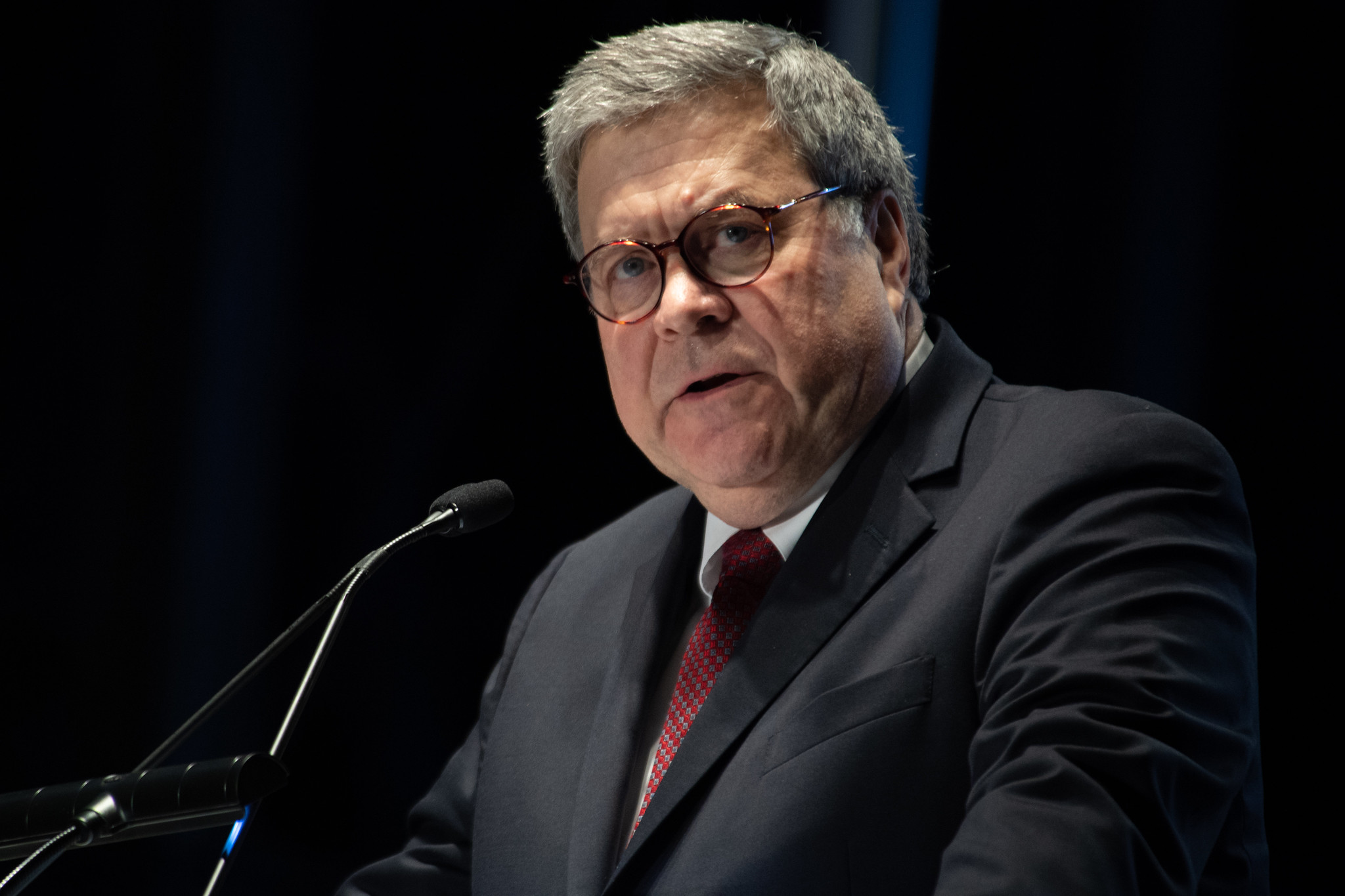Return of the Angry Political Man
Bill Barr volunteers his disturbing view of John Durham’s mission.

Published by The Lawfare Institute
in Cooperation With

Only days following Special Counsel John Durham’s failed prosecution of Michael Sussmann, former Attorney General Bill Barr appeared on Fox News and offered a remarkable view of the special counsel’s mission. “Far more important” than a conviction, he opined, was “getting the real story out” about a Clinton campaign “dirty trick.” If in the course of Durham’s investigations, a conviction is ever “achievable,” all the better—but, in Barr’s view, not absolutely necessary in judging the success of the investigative enterprise. There was this whole “other aspect” of Durham’s responsibility: “digging out very important facts” about campaign skullduggery and bringing them to public attention.
Here again is Barr as an “angry political man.” He has never been neutral about the subject matter of the Durham investigation. As he points out in his memoir, he was convinced well before he accepted another turn as attorney general that the Democrats had manufactured a “false narrative” about Russian collusion with Trump’s 2016 presidential campaign. He thought it “bogus,” “phony,” and “manufactured.” When in office, he took the extraordinary public step of disagreeing with the Department of Justice’s inspector general’s conclusion that the investigation into Russia-Trump campaign collusion was properly predicated and he declared that the inquiry rested on the “thinnest of suspicions.” When the Mueller Report was on the verge of public release, Barr famously appeared before the press to frame the report’s conclusions in terms most favorable to the former president.
Barr appears keen to have Durham’s mission pursue score settling with those who, as he stated in a speech at Notre Dame in November 2019, adopted the “explicit strategy of using every tool and maneuver available to sabotage the functioning of [the Trump administration].” He wants “dirty tricks” exposed, and he is “very proud” of John Durham’s demonstrated commitment to this goal.
Of course, the role of the prosecutor is not to help build a political counter-narrative but to prosecute if “the evidence will probably be sufficient to obtain and sustain a conviction.” Under these established Department of Justice principles, it is a “matter of fundamental fairness.” There is no “other aspect,” as Barr’s commentary suggests, concerned with “getting the real story out” about a matter that is a profound political dispute.
Barr has chosen to embrace, in this instance, the rankest politicization of the criminal justice system.
For good measure, he excused Durham’s prosecutorial failures by dismissing the chances of any fair trial of Clinton campaign “dirty tricks” before a District of Columbia jury. He declared these to be the “facts of life,” apparently related to his view, vaguely stated, that there are “two standards of the law” rather than the one standard we would all hope for. It was a fitting flourish to a sad moment: a former attorney general breeding cynicism about the legal system, in relation to a prosecution widely viewed by seasoned criminal justice professionals as strikingly weak and doomed to fail.
Barr’s tenure as attorney general was marked by moments when he brought his politics to the fore, and others for which he deserves credit: resisting Donald Trump’s demands that he press for a preelection, politically motivated timing for a conclusion to the Durham investigation and that he mobilize the Department of Justice in support of the “big lie” about a stolen 2020 election. But the angry political man has returned. And in his Fox News interview, flashing the anger and laying bare the politics, this former attorney general tellingly defined how he understands the mission of the special counsel he appointed.





